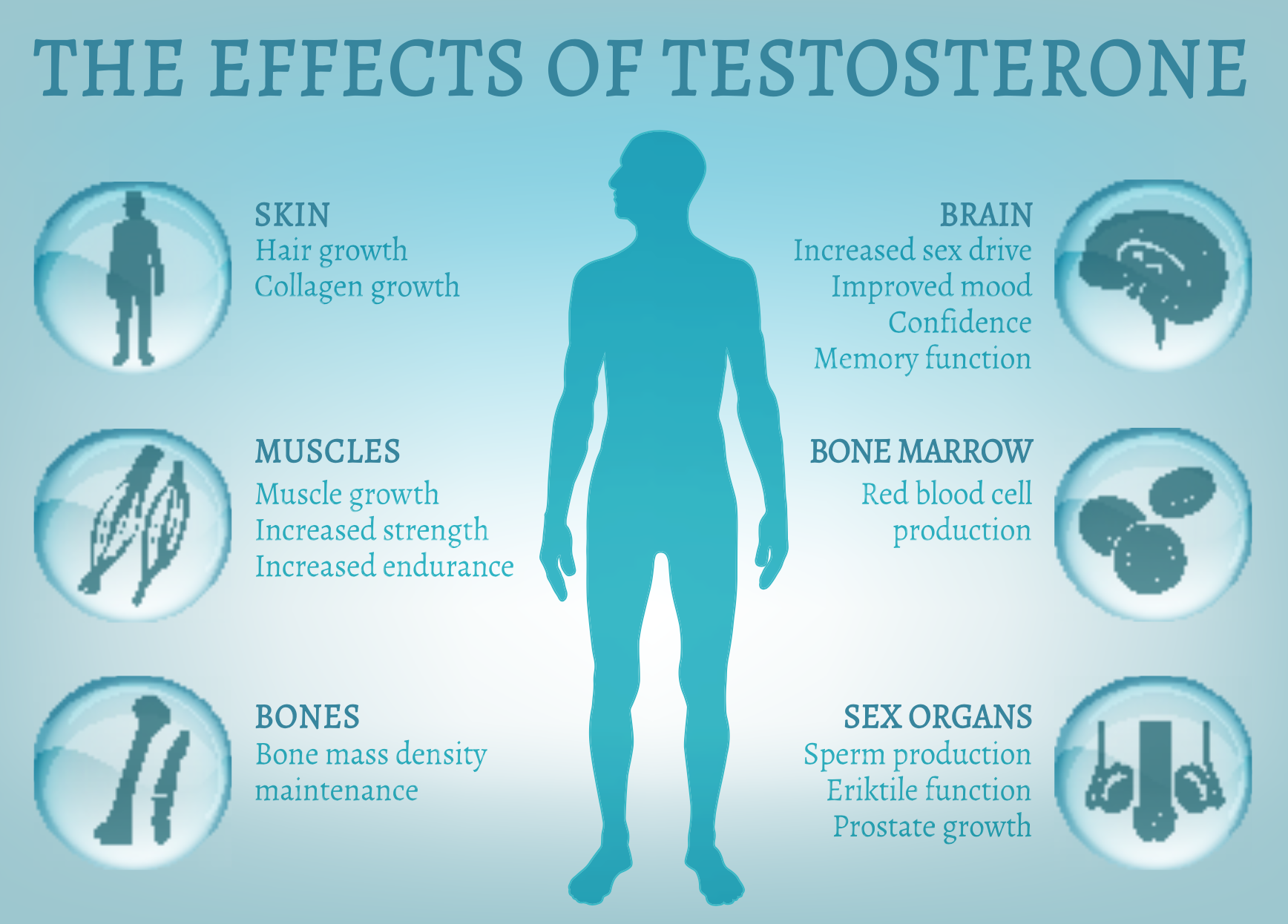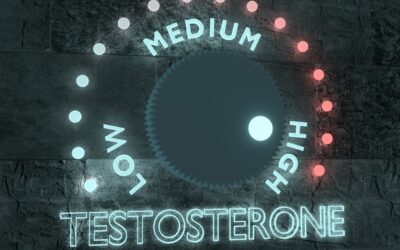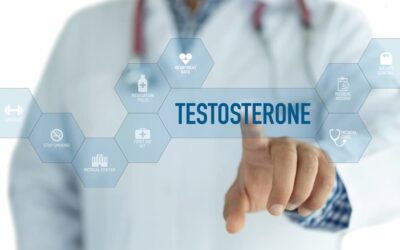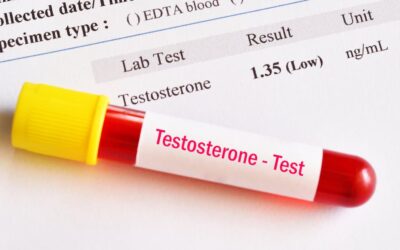The number of men with low testosterone today is rising. While there are several factors associated with the cause, the focus of this article is going to be on the safety of testosterone replacement therapy.
Testosterone replacement therapy (TRT) can be a miracle drug for men suffering with the symptoms of low testosterone. But is TRT safe? Are there risks? If so, what are they?
Hundreds of trials have been done on TRT in the last decade, but to date there is no conclusive evidence of severe health risks. Some trials show slightly increased risks to health, some show no risk, and some studies even indicated TRT reduces risk of disease.
What we do know is that the risks and benefits of TRT are dependent on the individual and the dosage prescribed. While testosterone replacement therapy has existed for decades, it’s only been since the early 2000s it has become a viable solution for men with low T.
As a result, many short-term studies have been conducted. But we don’t know for certain if there are long-term effects, as testosterone therapy (which has been grandfathered in by the FDA) is still relatively new.
Men with low testosterone, and who are candidates for TRT, should know if there are risks and what they are. In this article we’ll detail the most commonly known side effects of TRT. These are the ones testosterone doctors are familiar with and treat in their own practice.
Many of these side effects are quite rare and pose no long-term health threats. For some men, the symptoms of low testosterone are so pernicious that the benefits of TRT far outweigh any of the health risks we’re going to mention.
If you’re considering testosterone replacement therapy, it’s a subject you should discuss with your doctor before starting. Unfortunately, there is a lot of confusion regarding potential risks, even among doctors.
This article is written to shed light on the safety of TRT. Being well-educated and knowing the facts will help you make an informed decision about going on testosterone therapy or not.
TRT Is A Relatively Safe Therapy
Most doctors agree there are risks associated with testosterone replacement therapy, but they are mild. The good news is that all patients are monitored closely during their treatment and irregularities can be spotted quickly.
In contrast to other therapies, TRT is a lot safer in this regard. Any abnormalities that are detected can be intervened easily. Many other forms of therapy cannot say the same. This is an important reason why TRT is relatively safe. If something shows up that is of concern, the testosterone doctor can quickly change dosage, stop therapy, or offer an additional way to handle it. For this reason, TRT is very unlikely to cause any long-term damage.
When trials or studies look at long-term usage (several years or more) of testosterone replacement, they often overlook this point. It should go without saying that you need to work with a qualified and competent testosterone doctor to mitigate risk. All good doctors will administer routine blood tests to evaluate your condition and make sure there are no unwanted effects. If you choose not to visit your doctor regularly to test, there will certainly be more risk.

What Are The Most Common Side Effects Of TRT?
As a new patient begins testosterone replacement therapy, it is typical for their testosterone to rise. When this happens, estrogen levels (or more particularly, estradiol) increase as well. This happens because testosterone is directly converted to estradiol. While estradiol is normal, too much of it can cause mood swings, hot flashes, fluid retention, and breast development (gynecomastia). Abnormally high levels of estradiol can occur in some men on TRT. This is the most common side effect. Fortunately, it can be controlled with a medication called anastrozole.
This medication acts as an aromatize inhibitor, which prevents testosterone from being turned into estradiol. Anastrozole is a safe, cheap, and effective medication. It is typically prescribed once per week and will safely reduce estradiol levels. This possible side effect is not serious and is often spotted and handled quickly. Another possible risk of TRT is an increase in red blood cell count. Most testosterone doctors would agree this is the second most common side effect from TRT.
An increase in red blood cell count in the blood will increase viscosity. When the blood becomes thicker or viscos, it makes the heart’s job more difficult. It’s simply harder to pump thicker blood than thinner blood.
As a consequence, this side effect can cause headaches and increases in blood pressure. If it’s allowed to persist, it can even lead to an enlarged spleen or even blood clots. But most good doctors can spot this issue early. The answer to this problem is to lower red blood cell count. Red blood cell count can be reduced through donating blood or lowering the dose of testosterone. By doing so, red blood cell count can be reduced back to normal. Again, most men will not experience this, but it is a possible risk.
Another possible side effect of testosterone therapy is acne. This can occur when testosterone converts into DHT (dihydrotesosterone).
While this conversion is normal, too much of it can influence the sebaceous glands in your skin to produce excess oil. When excess oil is present on the skin, it can trap bacteria and dirt, which in turn causes acne. This is commonly seen on the back and shoulder area. This side effect is not a huge health concern. But it is an aesthetic risk you should be aware of. A more serious concern is the health of the prostate on TRT. We’ll preface by saying that testosterone therapy does not cause cancer. This is often misunderstood by lay people. Furthermore, prostate risk is seldom seen in young men. It would happen more so with older men but is still extremely rare. Let’s detail the risk and how it occurs. When a patient is put on TRT, the additional testosterone in their system usually increases their DHT levels. DHT can and often does influence the prostate. Some patients start TRT with abnormally small prostates. When on TRT, it is not uncommon to see those patients’ prostates increase to normal size. This is perfectly fine, as long as PSA levels stay normal. However, a small percentage of patients have an undiagnosed cancer in their prostate before starting TRT. If that’s true, and their prostates enlarge on TRT (as we just discussed), then that undiagnosed cancer will grow more aggressively.
This is the largest risk factor of the three mentioned so far (the others being an increase in red blood cell count and acne). Again, TRT does not cause cancer. But if cancer is already present in the prostate, it could exacerbate it. All good testosterone doctors know this. They therefore monitor PSA levels and urinary systems very carefully. If these levels show up as abnormal, doctors will typically stop or reduce therapy and check for cancer in the prostate. The next possible health risk involves fertility. It’s a complicated biological premise to explain, but TRT can possibly lower sperm production.
This is because when supplemental testosterone is introduced into your body, your brain recognizes it and slows the production of sperm in your testes. With your body producing less sperm, fertility decreases.
While this is not a common risk, it is a potential one. If you are planning on starting a family, talk to your doctor first about this before starting treatment. One way doctors can guard against this health risk is by using a medication called HCG or “human chorionic gonadotropin”. It basically tells your testes to remain active, counteracting the reduction of testes size.
Other Risk Factors and Conclusion
Some studies suggest that TRT can cause more serious health problems, including liver toxicity, heart problems, and strokes. Most doctors agree there isn’t enough data to suggest TRT causes any of these risks. Some very credible doctors, like urologist Dr. Landon Trost, believe they are “unlikely”.
Like Dr. Trost said, there either isn’t enough data to support these claims or there are contradicting studies that show there is risk and there is no risk. We’ll liley need another decade or two to realistically analyze if
TRT does indeed cause long-term health risks.
We want to reiterate that with consistent and close monitoring of patients by doctors, any severe concerns of health risks (if they are true) can be severely mitigated. Most testosterone doctors will tell you that TRT is safe and the risk of developing a serious health condition from it is minimal. These doctors have put hundreds, and some thousands, of patients on TRT. Very few patients develop health conditions that cause them to go off treatment. This is due to the expertise of the doctors and to the screening of candidates before starting therapy. For men who are candidates of testosterone replacement therapy, the benefits usually exceed any associated risks. We talked all about risk in this post, but there are a large number of benefits from TRT as well. Those benefits need to be weighed against the potential risks and will vary for each individual. While no drug can ever guarantee complete safety, it does seem from empirical evidence with doctors and clients that TRT does work and health risks are very low. Hopefully this article dispelled some of the myths associated with the risk of TRT. There are thousands of men around the world benefiting from it. Do your own research and speak to an actual professional in the field before making a final decision. If you’d like to speak with one of our qualified and experienced medical doctors, we’d be glad to set up an appointment for you.





